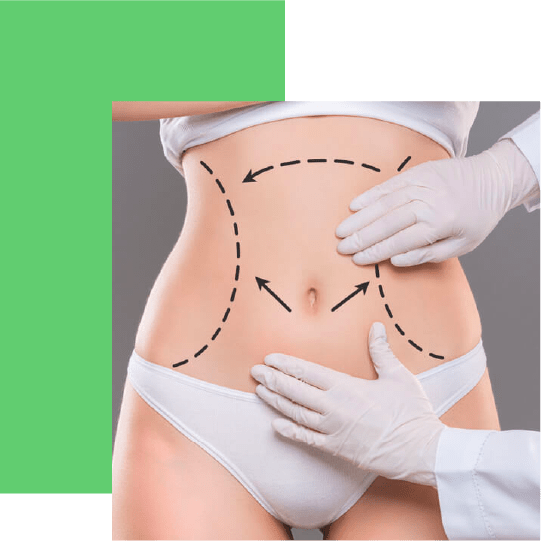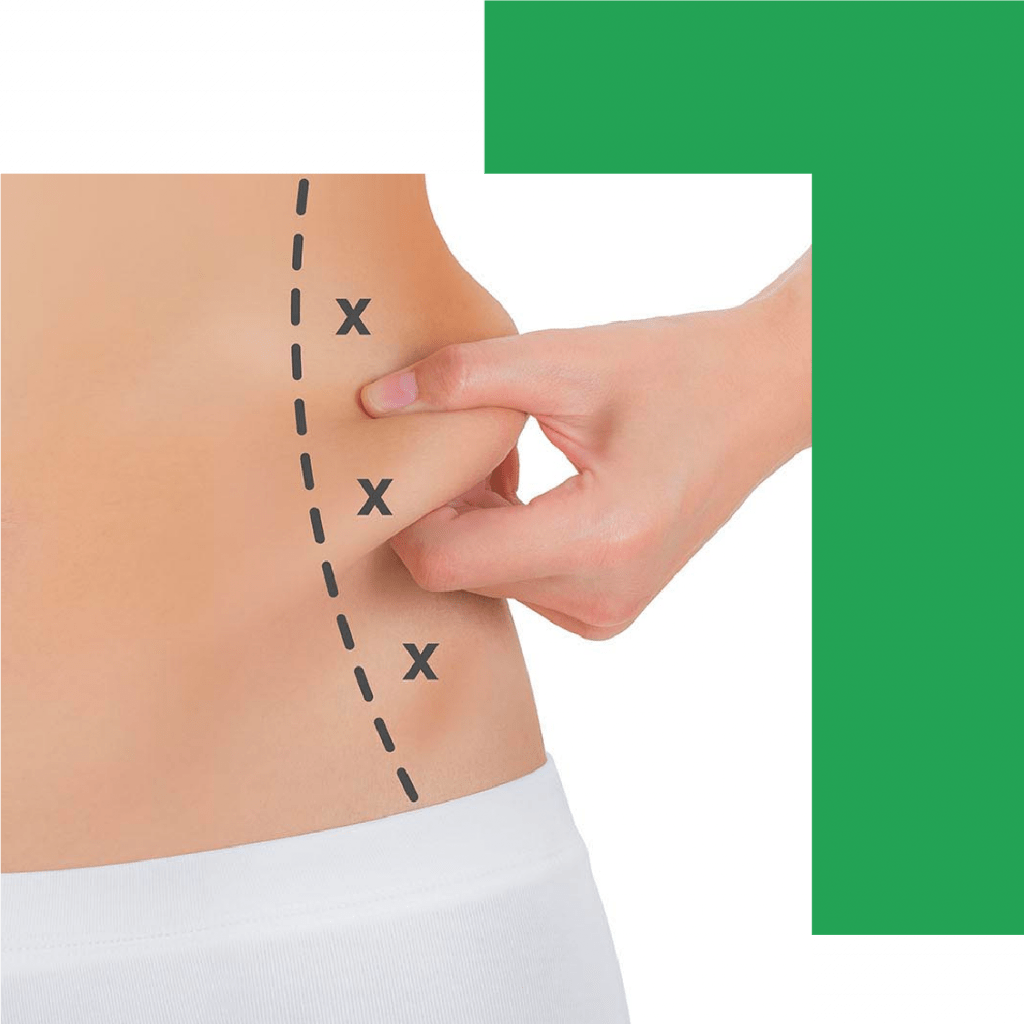
Liposuction in Turkey
Liposuction is a cosmetic procedure for removing excess fat to slim and reshape the body into the desired proportions. The convenience of liposuction makes it a popular surgery among patients – the procedure can treat multiple areas within one session and be performed along with other cosmetic procedures while offering consistent results.
Liposuction procedure
The surgery can take two to three hours and is performed under general anesthesia, local anesthesia, or intravenous sedation. Very small, indiscernible incisions are made, and the excess fat is removed by suction through surgical vacuums or syringes attached to a thin tube. There are several ways of removing excess fat.
Tumescent liposuction – the traditional liposuction technique, in which a sterile solution is injected into the targeted area to numb it, and the fat is removed mechanically by moving a cannula (thin tube) back and forth.
Laser liposuction – uses heat generated by lasers to liquefy fat by rupturing the membranes of fat cells, making it easier to extract. Laser lipo is more likely to damage surrounding skin, nerves, and blood vessels than Vaser lipo, but the damage is most often minimal when it does.
Vaser liposuction – uses ultrasound energy to liquefy fat before suctioning. Vaser lipo is more precise than laser lipo and, therefore, less likely to damage any skin, nerves, and blood vessels surrounding the fat.
Patient Profile
Liposuction is generally sought by patients with excess fat remaining in the body regardless of diet or exercise. You should be healthy, at a stable weight, have firm skin, reasonably toned muscles, and ideally a nonsmoker in order to have a liposuction. Patients with health issues such as heart disease, diabetes, a weak immune system, or blood flow problems are not encouraged to have liposuction surgery.
Consultation
During liposuction consultations, the following is discussed: surgical goals; medical history; substances used currently, including medications, supplements, alcohol, drugs, and tobacco; current health status; the expected outcome; postoperative care and potential complications. Photographs are taken, and options for the liposuction are discussed, after which the surgeon recommends an appropriate course of treatment. It is advised to make full use of the consultation appointment in order to make as informed of a decision as possible. It is essential for the procedure’s success to honestly answer all of the surgeon’s inquiries and openly ask about anything requiring clarification.
Before the surgery
The following may be requested from you before having your liposuction surgery:
• Getting tests for health evaluation
• Avoiding nicotine
• Avoiding aspirin, anti-inflammatory drugs and herbal supplements
• Taking specific medications or adjusting current medication
Postoperative care & recovery
After the surgery, bandages or compression garments are placed over the incisions as they heal. Drains might be placed under the skin for any build-up of excess blood or fluids. You are instructed on how to handle the bandages and drains and what medication to use for healing. The skin in the incision area should always be handled gently without exposure to any abrasive motion. About two weeks are needed in most cases to return to normal activities. You should expect to see the final results of your liposuction only after external and internal healing is complete and the swelling and fluid retention go down entirely, which might take several months.
It is advised to make inquires with your surgeon concerning the period immediately after the surgery and during recovery. You may have questions about where you will be placed after the surgery, what medications you will be given, and when to arrange an appointment for follow-up care.







